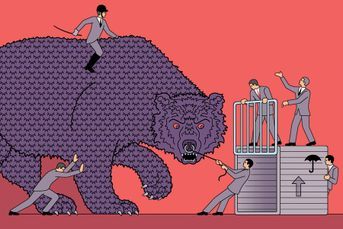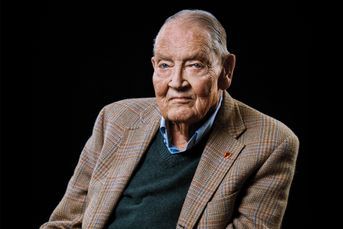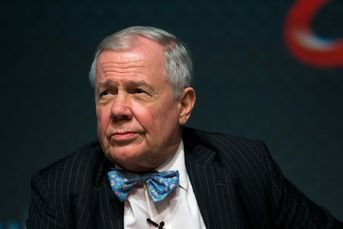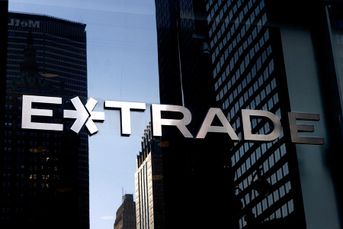In the ETF world, spoils still go to the biggest and cheapest
New entrants dominate Morningstar ETF conference.
The ETF industry has grown largely due to passively managed, low-cost investments. Over time, these funds have an indisputable edge over their actively managed rivals.
“Actively managed funds have underperformed versus passively managed funds, especially over longer time periods, and experienced higher mortality rates,” Ben Johnson, director of global ETF research at Morningstar, said at the Morningstar ETF conference that kicked off in Chicago Wednesday.
At the event, 712 participants and dozens of exhibitors are mulling the future of a rapidly maturing $3 trillion industry.
Actively managed funds have watched a net $183.5 billion flee in the past 12 months, according to Morningstar estimates, while $671.1 billion has flooded passively managed funds. None of this has been lost on investors or financial advisers.
The battle for the low-cost dollar has largely gone to the behemoths of the industry. Vanguard alone accounted for $337.6 billion in net flows the past 12 months, while iShares gobbled up another $191.5 billion. Few other fund companies have the economies of scale to offer funds with such low annual expenses — typically less than 10 basis points a year. For any small fund company, the barrier to entry in the low-cost contest is insurmountable.
The result has been an explosive growth in smart beta funds. There are 650 strategic beta exchange-traded products in the U.S. now, with assets of $621.9 billion in assets, Morningstar says. That’s a third of all exchange-traded products; 40% of all new exchange-traded products launched in the past three years have been strategic beta products. (Morningstar prefers “strategic beta” to “smart beta,” which it sees as a marketing term. “Not all strategic beta funds are smart,” Mr. Johnson said.)
Strategic beta funds tend to attract the most money if they have a large, well-known sponsor and a decent track record against their peers. The largest asset-gatherers in the past 12 months have been those with basic value tilts, such as Vanguard Value ETF (VTV), which saw an estimated $3.8 billion in net new flows this year.
The question: Do they perform as advertised? Funds that claim to reduce risk haven’t really been tested. A 5,000-point drop in the Dow would be an ideal testing ground, albeit a painful one. In what downturns have occurred recently, the results have been mixed at best. For funds that use some other weighting than market capitalization, the best returns have been from large-cap blend, value and growth, as well as small-cap blend. Equal-weighted funds, particularly large-cap, also fared well.
Mr. Johnson noted, however, that, “As we go back in time, the sample gets very small.” Just 13 large-cap value strategic beta funds have 10-year records. Those with good records versus their cap-weighted brethren tended to lean towards cheaper and smaller stocks.
The most successful recent additions to the strategic beta universe, however, have combined active strategies with big sales forces. Goldman Sachs ActiveBeta US Large cap Equity ETF (GSLC), for example, has grown to $2.4 billion since its 2015 inception. The fund’s expense ratio is nine basis points. “It’s a case example of the fact that investors aren’t waiting three years to buy new products,” said Todd Rosenbluth, senior director of ETF and mutual fund research at CFRA. “You can leverage your brand and tap into the relationships you have.”
Nevertheless, the assets are still flowing to the largest, cheapest ETFs. “Cheap, market-cap weighted ETFs are still still reigning in a crowded, non-market-cap weighted world,” Mr. Rosenbluth said.
Learn more about reprints and licensing for this article.








